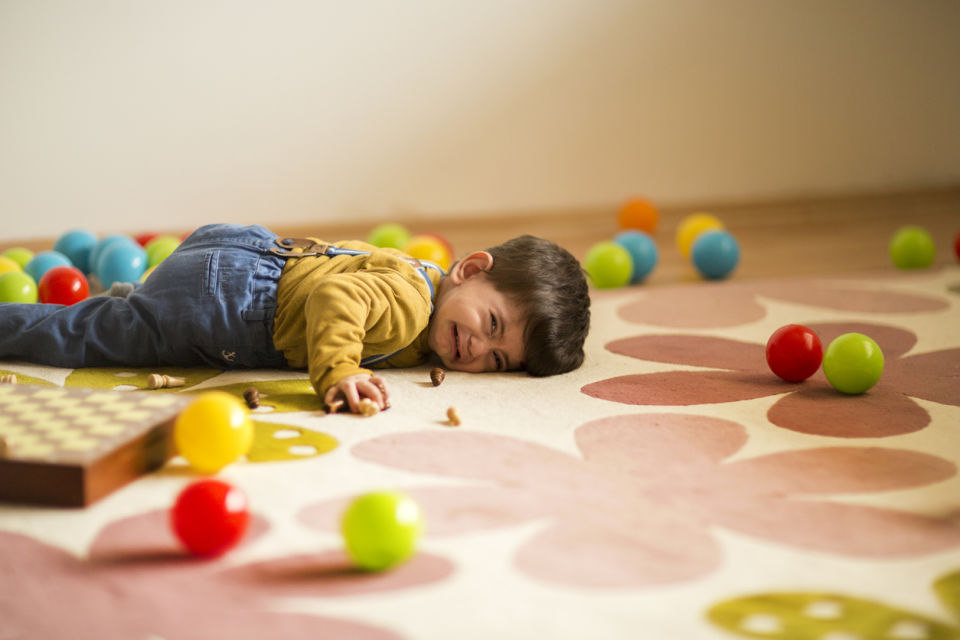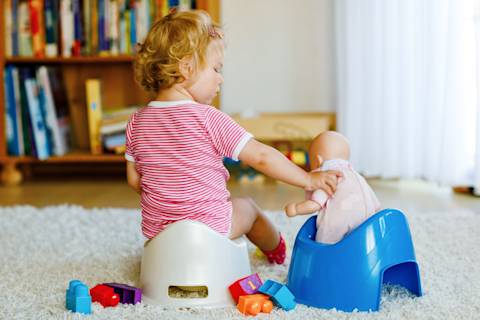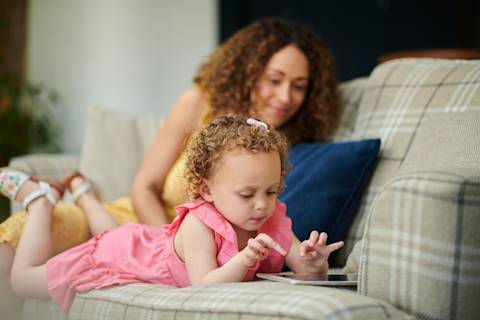Parenting is a family’s approach to raising a child. Teaching your toddler appropriate behaviors and responses is a big part of it. When deciding how to discipline your baby, it’s important to research different strategies and choose the approach that works for your child and family. Don’t be afraid to mix and match strategies as long as they work at helping your toddler learn in a positive way, and you are consistent with what you do.

Tantrums and big emotions? Sounds like toddlerhood! Toddlers are likely to get upset and misbehave at some point – it’s all part of their normal learning process. How parents and caregivers respond can dramatically help a toddler improve behavior and manage emotions – not just in the moment but also the future.
Find the good. Immediately praise or reinforce your toddler accomplishments. High fives, clapping, positive words, and affection are all great ways to acknowledge your toddler’s positive behavior.
Set clear expectations. Let your toddler know what is expected. Use the phrase “First...then…” to simplify directions. For example, if your toddler wants to have a treat before finishing lunch, you can say, “First eat your broccoli, and then you can have the strawberry.”
Help them with their words. As they are learning to speak, toddlers often struggle with finding the words to say what they want or feel. You can help by giving your toddler a “script” of what to say in specific situations. For example, if your toddler is grabbing toys from others at the park, you can say, “I see you want to play with those toys. You can ask, ‘May I have that toy please?’” This can be practiced in the moment when your toddler needs the right words to say.
Teach routines. Routines help toddlers (and you!) get through the expected parts of the day more smoothly.
Give time. Parents often expect toddlers to act or respond right away, but they need time to process and understand – let alone get the task done! Try giving one direction at a time, and before you repeat yourself, count to ten in your head.
Stay calm. Keep your voice calm and steady. If you get upset, your toddler is more likely to get upset.
Maintain eye contact. Look at your toddler when you explain instructions or model behaviors. This will help your child know you are talking to them can also help improve listening skills.
Give them things to do. Assigning small “jobs” – or even just choices – can help motivate your toddler. For example, when it’s time for clean-up, ask your toddler: “Would you like to put the blocks or puzzle away first?
Young children love to help! It's important to give them small jobs to do. They feel important and builds their confidence.—Debra Joan WoodMake things fun. Toddlers are all about play. If you turn everyday tasks into games, your toddler is more likely to want to join in on the fun. So, instead of “Go brush your teeth!” ask your toddler, “How many teeth do you have? Let’s count them while we brush them!”
Important Tip: If you find yourself getting upset with your toddler or can’t handle your toddler crying, take a break to collect yourself – and remember to breathe! Let someone else be with your baby for a bit, or, if you’re alone with your child, put your toddler in a safe place for a moment. Giving yourself time to regroup and get calm will help you be a better parent.
QUICK TIP: Toddlers need “down time,” or time to rest and relax. If your toddler does not take naps, set aside quiet time for calm activities such as looking at books, drawing, or laying down and listening to soft music.
During especially hard times, like a national emergency, crisis, or during a pandemic, find more tips on managing stress and parenting here.







